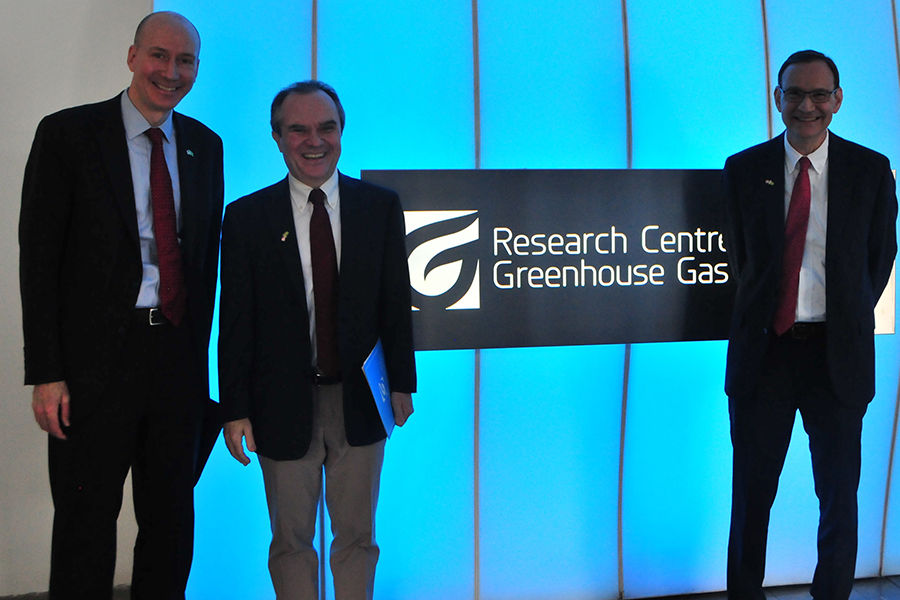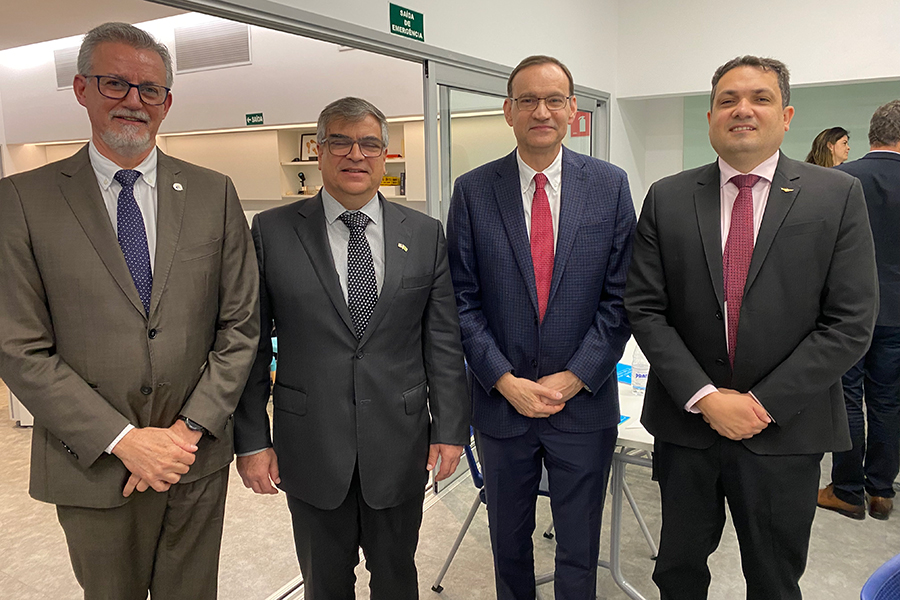U.S.-Brazil roundtable brings together DOE, Purdue and Brazilian universities to highlight ongoing collaborations
A Department of Energy (DOE) team, led by U.S. Deputy Secretary of Energy David Turk, together with National Science Foundation (NSF) representatives from its Engineering Education and Centers (EEC) division and Purdue partners met on March 15 at the University of São Paulo Polytechnic School of the University of São Paulo (USP) to highlight Brazil-U.S. collaborations in the area of energy. The goal was to provide the Deputy Secretary with an overview of the clean energy science, technology, and innovation environment in Brazil. Three roundtable sessions brought together a variety of perspectives from academia, government, and industry, including the international context under which the U.S. and Brazil enjoy a growing and fruitful collaboration in clean energy.
In a session titled “Engineering Research Center (ERC) to Engineering Research Center (ERC) Cooperation: Ongoing cooperation and the opportunity space for additional cooperation,” Brazil’s Energy Research Office (EPE) opened with a high-level overview of some of the unique opportunities for Brazil to become one of the first countries in the world to implement the energy transition.
Fabio Ribeiro, Purdue’s R. Norris and Eleanor Shreve Professor of Chemical Engineering and Director of the Center for Innovative and Strategic Transformation of Alkane Resources (CISTAR) – an NSF Engineering Research Center (ERC) -- shared CISTAR accomplishments. Also participating were Dr. Heloisa Borges Esteves, Director Oil, Gas and Biofuel Studies at Empresa de Pesquisa Energética; and the two directors from CISTAR partner centers in Brazil -- Julio Romano Meneghini, Scientific Director, Research Center for Greenhouse Gas Innovation (RCGI); and Ana Flávia Nogueira, Director, Center for Innovation on New Energies (CINE), University of Campinas.
The meeting also provided an opportunity to highlight the collaboration between Purdue and three Brazilian Universities: Universidade de São Paulo, Universidade Estadual de Campinas (UNICAMP), and Instituto Tecnológico de Aeronáutica (ITA). Purdue has received multiple students from the collaborators and has seen research and educational collaborations increase greatly.
Ribeiro said that Brazil has unique human and natural resources to become a leader in the energy transition. “We want to join our partners in solving the issue of our century: how to create new processes that will be more efficient and economical than the current ones based on fossil fuels, while creating better jobs and communities around the world,” he said. “The world needs a place to implement new technologies with the best chances for success, and that place is Brazil.”


